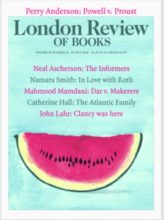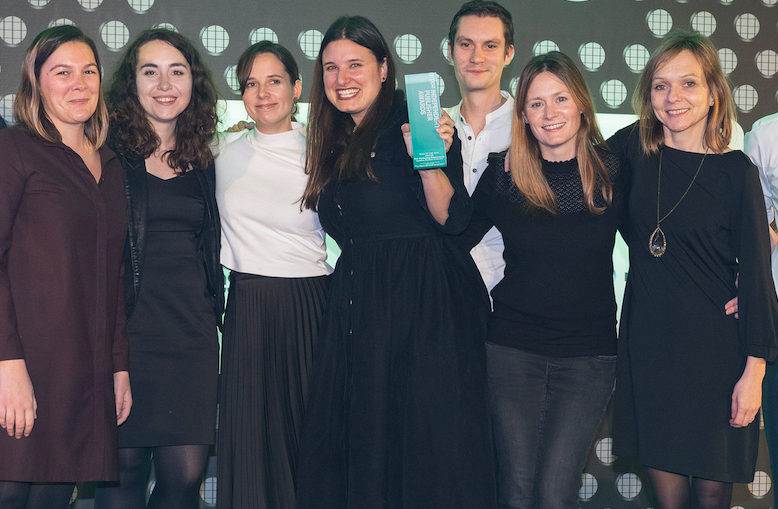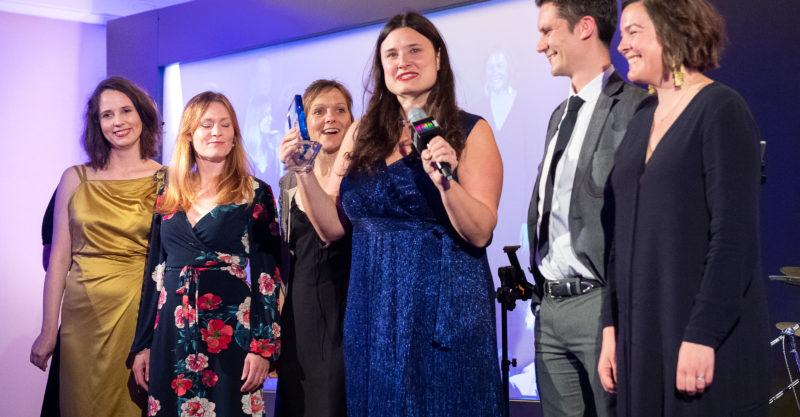London Review of Books recently won “Brand Team of the Year” at NMA2019. What do your readers value most about your brand?
Our readers really value the quality of our content above anything else. The LRB contains some of the best writing from the best writers in the world- they are thoughtful, engaging and in-depth pieces on a range of topics, from politics to history to art. The name is a bit of a misnomer- our outlook is global and it doesn’t really just review books!
What inspired you to enter Brand Team of the Year?
I am really proud of the work we all do here. Our continued growth and successful results are something that I have always valued, but it means a lot to have it recognised by the wider industry. And I particularly value that this category is about being a “team”: I genuinely feel that the most successful departments are those that work democratically and openly and help one another.
What does team mean to you?
I think a team is about support. Teams work together for a set aim, and I think it’s that focus and intent that makes us continually exceed expectations. We are not competing with one, but rather celebrating our joint success.
Our judges were impressed with how, as a smaller publication, London Review of Books achieved such high quality results. How important is agility, initiative and creativity over budget for smaller publishers facing the challenges of a changing environment for their products?
This is a great question (and thank you!). I am really impressed that the NMA judges recognised the challenges and successes of an independent publisher, as I feel we tend to sometimes get overlooked when we are up against the big players. Of course the things you mention (agility, initiative and creativity over budget) are important for all publishers regardless of size, and in some ways being a smaller publisher gives us the advantage. We can concentrate on iterating our campaigns through testing, making each thing we do more and more effective over time. And being a single title means we are very, very close to the results. This is essential to success.
What three things does a team need to be successful in publishing?
- A publishing model (and someone numeric and detail-oriented to run it). I am constantly surprised by the lack of circulation modelling done at other companies these days. You need to be able to read your data and circulation forecasts to successfully run a subscriptions business and to provide accurate, achievable budgets.
- Budget. And by that, I mean a company that is prepared to invest in circulation growth. Our acquisitions campaigns need to break even in Y3. This allows us much more room to try, test and iterate than we would if it had to be profitable in the first year.
- Pay attention to retention (hey! that rhymes!). We used to focus almost entirely on new business, and that is still incredibly important to us, but getting someone whose remit is entirely retention and customer engagement has proven essential, and I think it’s an easy role to forget about. Remember, it’s cheaper to keep a subscriber than to get a new one! So investing in the retention part of the funnel should be paramount to publishers.
What are the best things a company can do to encourage high performance teams?
I think the key to this is to know your teams. Everyone is different! I learned this really early in my career when I was running an Ads department. I gave them all an internet quiz about motivation, and only 1 was motivated predominately by money – and this was in a sales team!
Outside of this, I think it helps if a company gives space and trust in their teams for creativity and innovation. No matter how senior a staff member, if the company breeds a culture of experimentation, then people can follow their passion and instinct and this tends to breed much better (and more interesting) work environments than places that expect you to toe the line.
Communication is important within every team, thinking about your winning team what communication advantages might you have had over the competition?
Well we do rather like one another and tend to socialise at drinks or lunches, which makes a nice work atmosphere. But we also try to use a lot of different communication tools, which I think helps to further democratise our team. For instance, we do polls a lot on Slack, have channels where anyone can contribute copy or campaign ideas, and do a lot of friendly betting so everyone has a stake in results even if it’s not something they are working on directly (things like “how many copies of our new book do you think we will pre-sell on the LRB Store?”).
On the night of NMA2019, what was the reaction on your table when it was announced London Review of Books had won?
I know people always say they were surprised, but the whole thing was a genuine shock! First of all, we had never entered or attended the NMAs before. Second, we were shortlisted against some huge brands. So there were are, at a table waaay in the back, and settling in for the evening, wine pouring thinking “we don’t need to worry about being too much on our A-game because there’s no chance we could ever win this.”
Honestly, when they said our name, I think we froze for a few beats before we realised it had actually happened. After traversing the room in a daze, I think someone put a microphone in my hand (it was the first award of the evening so I had no idea how it would all work). I have no idea what I said. I really hope it’s not recorded anywhere.
The picture we took in the photo booth outside just after we accepted our win is still in pride of place on our marketing board. It shows a mixture of delight and shock!

How has winning “Brand Team of the Year” helped your team to become even stronger?
It is really special to go through these milestones together and to realise that the wider industry respects what we do. Sometimes work can be very insular, and knowing that we were chosen for such an illustrious award meant a great deal to us.
Plus, our Publisher sent an email around to everyone, including our board, and we got a lot of nice compliments! The truth is, though, that at the end of the day, it’s about the work. We love what we do, and frankly we know we’re good at it, so we really felt overjoyed that the NMA judges saw that too.
Any advice for entrants to this category in 2021?
I would advise that you just go for it and enter, especially if you think “it always goes to the big publishers”. And do try to start your entries as early as possible to get them polished before submitting (some big companies have more staff and resource for award writing).
Also, do try to ensure your entry matches the criteria as closely as possible – specify exactly what kind of work you have done in each area they are looking for. And finally, whether you win your lose, you should be proud to shout about the work you do and send in an entry regardless. Just writing them up in the first place is hugely valuable because it gives you a chance to pause and reflect on what you’ve done over the past year.
Plus, even if you don’t win it’s a fun day out, and is another way for your team to bond in either commiserations or congratulations.
Ace would like to sincerely thank Renee for her brilliant interview contribution chock full of motivational insights.
